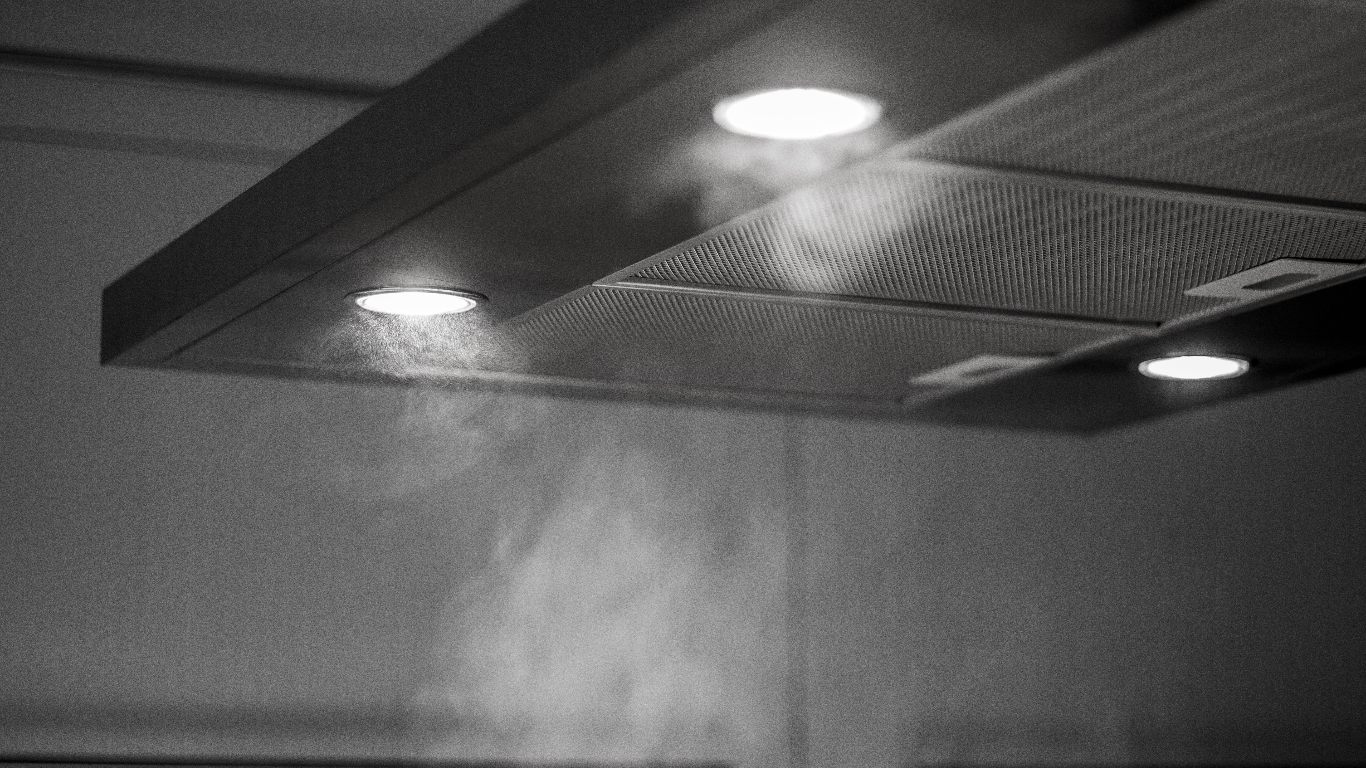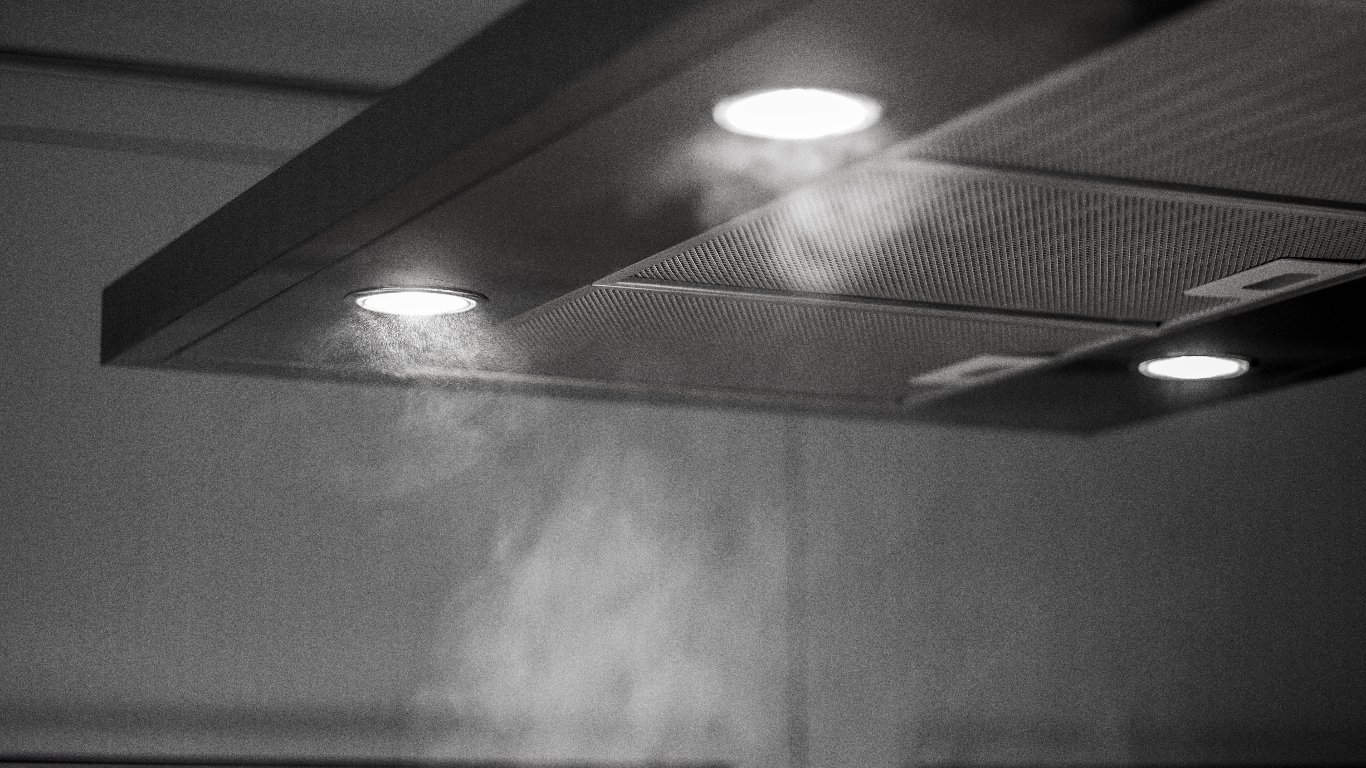
It's the million dollar question, isn't it? Just how frequently should you afford your kitchen extraction system a thorough going over. But like the proverbial million dollar question, there's not simply the definitive answer. Which admittedly, would make life/this blog much easier.
Instead, there are a multitude of answers to the titular question. None of which are wrong; just to confuse you a little bit more.
Rest assured though, it's the objective of this particular blog to set the record straight, and get to the bottom of this hugely important kitchen extraction system cleaning poser. So bear with.
First things first though, and we must address the not so inconsequential matter of your kitchen's purpose. As this makes a massive difference in the run of things. For example, if we're talking about most domestic kitchen set-ups, then the extraction cleaning regime is significantly less routine than that of a commercial kitchen. And the practices which should ALWAYS be adopted in this specific scenario.
A scenario which witnesses a lot of cooking (and therein, use of cooking equipment) an awful lot more than your average family hub does. So, if you run a successful restaurant or independent fast food outlet, it goes without saying that the kitchen is facilitated by chefs and all other kitchen staff pretty much around the clock. Well, if not quite 24/7, then still considerably more hours put in than a typical home situation, obviously.
So Why Does a Commercial Kitchen Pose Such a Threat, If The Extraction System Isn't Maintained and Remains Fit for Purpose?
Because its their job to dilute, filter and ultimately remove any residual smoke and grease which lingers (or lies dormant) within the commercial kitchen space. Which subsequently ensures that the overall working quality - and health and safety of the individuals working in situ - isn't compromised by the presence of substances which can affect us all under the right circumstances.
Extraction systems on a more commercial scale tend to see a lot of action on a day-to-day basis, due to the very nature of the businesses which require them. And depending on the working hours in individual cases. Which means that because they're used so frequently, then likewise; they need to be cleaned frequently to eradicate any build-up of substances which may cause harm in the medium to longer term for those people unwittingly exposed to them. Such arenas give bacteria a great place to set up home, if kitchen owners and operators don't remain vigilant and on top of the job in hand.
Kitchen Extraction Systems Don't Get the Credit They Deserve
Fact. They just don't. In many ways kitchen extraction systems - like the sizeable ones more commonly found in commercial kitchens - are akin to unsung heroes. Fulfilling the remit of their job (as summarised above) and pretty much getting on with it behind the scenes. Taking care of noxious fumes and grease and making the kitchen a healthier and safer place to work in for everyone concerned. Aha - the safety bit.
Yes, fire risk is a (not so) clear and present danger when discussing the types of kitchen extraction system discovered in most commercial environments. Avoiding potential fires is paramount for anyone with the responsibility of a commercial kitchen and overseeing the health and safety ramifications. And that's largely due to the underlying fact that grease is very combustible as a latent substance, you see. And can easily act as an accelerant in a commercial kitchen.
Unfortunately, because extraction systems in commercial set-ups often do their thing largely unobserved, dust and grease can magnetise to the infrastructures in no time at all. Providing that volume of work is asked - and recruited - of the system, as a direct result of a busy kitchen.
What Does a Kitchen Extraction System Traditionally Comprise Of?
A canopy tends to give the kitchen extraction system game away to the casual observer. Elsewhere, ducting and fans are visually evident when you look hard enough, the latter of which literally 'extract' the fumes through the hood. Fumes most notably of which include carbon monoxide, together with other equally as dangerous fumes, along with fat particles. Thus minimising the risk of both fire and employees/members of the public succumbing to illness based on exposure to said fumes.
Carbon and/or grease filters are also commonplace, when it comes to the paraphernalia closely associated with kitchen extraction systems of this magnitude. As an added bonus, filters also work wonders in either reducing or eliminating any odours created whilst cooking. Which can be rather unpleasant when you're working in that sort of atmosphere for sustained periods.
Why Does It Need to Be Cleaned So Robustly Though?
Well, were you aware that the origins of some 70% of fires in commercial kitchens can be traced back to a faulty extraction/ventilation system. Caused by what else other than a build-up of fat and grease, according to health and safety investigators in the aftermath of incidents reported.
Tell Me More About Those Fire Risks You Mentioned Earlier....
Sadly filters can't remove all traces of grease and dirt from the air generated in a bustling commercial kitchen environ. They just can't. So over time a film of both increases on the surface area of ventilation ducts, canopies and extractor fans. This then poses a very real fire risk. History determines that fires which begin within the confines of ductworks are incredibly challenging to put out. Not least because ductwork is often inaccessible. What's more, ductwork also shares architectural space with adjacent or connected properties, thus giving the fire more outlets in which to spread. Unsurprisingly, damage caused by fire can be very serious and force businesses to close.
Getting Back to Other Issues Relating to Kitchen Extraction Systems....
Impact on the efficiency of a system being another point in question. If and when said extraction/ventilation infrastructures aren't cleaned thoroughly and frequently enough so as to eliminate the build up of noxious substances. Excess dust and grease will always make it more difficult for the system to function at its optimum.
Meanwhile, not looking after a kitchen extraction system will have a negative effect on your insurance policy too, if you're not careful. To qualify for insurance, it's imperative that you operate a clean extraction system at all times. Negligence will play havoc on any future policy claims in the event of anything untoward taking place in an establishment. Evidence of routine cleaning protocols and practices will also need to be supplied to correspond with insurance policy eligibility too, worth bearing in mind.
On a final note, it’s always necessary to meet TR19 standards, which is the most widely-accepted standard of ductwork cleaning recognised here in the UK.
Finally Back to The Most Pressing Question We Asked at the Top. How Often Should a Kitchen Extract system realistically be cleaned?
As we've already mooted, regularity of cleaning kitchen extraction systems primarily depend on the hours of work that the kitchen sees per day. While annual cleaning is a must for all systems, the frequency hinges upon the intensity of work. Monthly cleaning might be necessary for your extraction systems to adhere to its fit-for-purpose principles. However beneath we have bullet-pointed industry recommendations to give you a clearer picture.
Also, you should note the following. Although employees might clean the visible areas of the ducts and extraction system, more intensive, deep cleaning is necessary for the entire system to preserve its optimum operating capabilities. More often than not, this means staff should be trained in such elements, and equipped with the correct tools in order to perform these important duties.
Kitchen extraction system cleaning work should, essentially, be planned around the levels of use highlighted below;
• Heavy use (12-16 hours per day) - clean every 3 months
• Moderate use (6-12 hours per day) - clean every 6 months
• Light use (2-6 hours per day) - clean every 12 months
Footnote: Where cooking processes involve fat frying or wood/charcoal burning, cleaning may need to be more frequently applied, while dedicated extraction hoods and filters should ideally be cleaned/degreased daily. Or failing that, in accordance with manufacturers recommendations.






